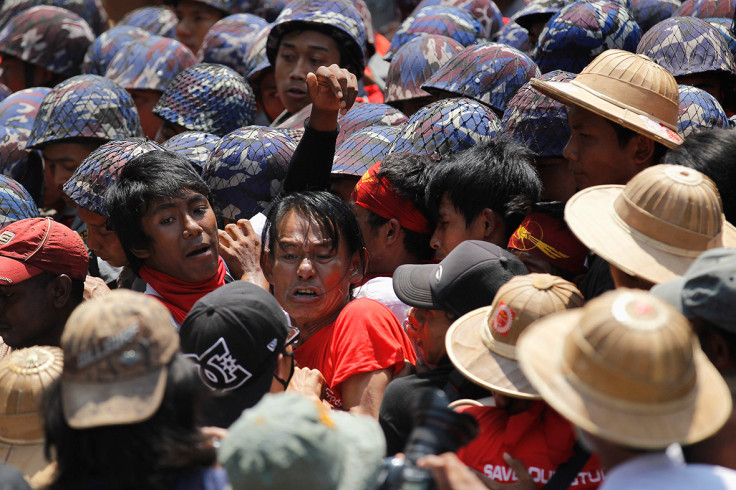Myanmar education law protest: Students 'at risk of torture and abuses'

Dozens of students are at risk of being tortured and abused after they were arrested by the police following days of protest in Burma, also known as Myanmar. The students were protesting against a recently implemented education law that they say curbs academic freedom, according to reports.
Demonstrators demanded more freedom for universities and students, who are banned from forming student unions. The protests started in January 2015 and continued despite the government issuing a warning and accusing demonstrators of being led by political organisations that aim to overthrow the regime.
Clashes erupted in Letpadan on 10 March after more than 400 police formed human chains to block the road and the protesters tried to push their way through. According to Mark Farmaner, Director at Burma Campaign UK, which promotes human rights, democracy and development in Burma, nearly 100 students were arrested and they do not know what will happen to them.
"A lot of students are still detained and they are at risk of being tortured as there is a history of people being tortured and abused while in detention in Burma," Farmaner told IBTimes UK.
"The clashes that occurred on 10 March quickly turned into extremely violent attacks by police. We have seen shocking scenes of violence and we received reports from people who said that police even attacked students while they were being carried to ambulances. No efforts from senior commanders were made to stop the violence."
Farmaner believes that police acted violently after receiving orders from the government.
"Burma is an authoritarian country and if police were told not to use violence, it is very unlikely they would have behaved this way. Burma has been under authoritarian law for decades so police don't act without permission. I believe the Burmese government gave police order to beat the protesters."
Burma Campaign is urging other countries, such as the British government, who were involved in Myanmar's education reform to disclose their role in drafting the educational law.
"The international community needs to come clean regarding their role," Farmaner said and then added that Burmese people are planning to protest at the EU delegation office against the EU training the Burmese police.
"The EU is training the Burmese police force and it is treating Burma as a country where the transition to democracy has already happened. But the problem is that it hasn't, there was just a promise.
"The danger is that international aids are helping to modernise an authoritarian regime rather than help transition to democracy, so many people in Burma are questioning EU's decision to provide training because even if they provide good training, police work for the government, which does not respect human rights. The EU needs to make sure that the training provided will not be then turned against protesters as it happened yesterday."
© Copyright IBTimes 2025. All rights reserved.




















